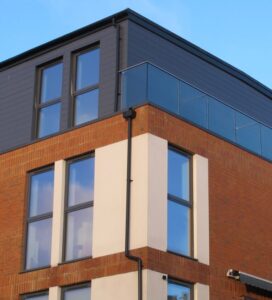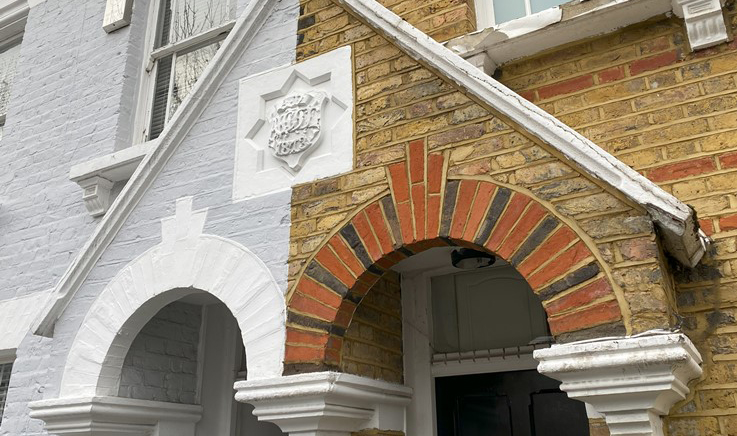There are many occasions when the services of a chartered structural engineer may be required. These can broadly be put into two distinct categories:
- A) Consultancy advisory reporting advice
- B) Design advice – calculations and drawings.
This article focuses on category A, since this is the expertise of Structural Engineers Reports Limited, a structural engineering firm, with nearly forty years of experience in London and the Home Counties.
 Chartered structural engineering – A specialist approach
Chartered structural engineering – A specialist approach
Chartered structural engineering is a very specialist discipline within construction and the built environment. General advice tends to be provided by chartered surveyors for residential buying and selling, chartered building surveyors for the technical and commercial sector, and architects provide advice related to design, town planning, and building regulations.
A useful analogy can be made with the medical profession: a general practice doctor (GP) is like a general practice surveyor where buying and selling residential properties is concerned. Similarly, a structural engineer, as a specialist, is comparable to a heart or knee surgeon or other specialised consultant in medicine.
There are very large firms of chartered structural, and civil engineers who design and advise on all manner of commercial and industrial buildings, bridges, airports, and similar large-scale infrastructure projects. These firms rarely deal with the residential sector as they tend to work for repeat clients on extensive projects.
In contrast, the residential sector is generally served by small and medium-sized companies (SMEs), particularly those with one to ten employees.
Historically the majority of structural engineers prefer doing design work, such as calculations and drawings, for extensions, lofts, basements, new houses or blocks of flats. However, it is far more difficult to find structural engineers who possess both a passion and expertise in the forensic, diagnostic and reporting sectors.
Whilst the training of structural engineers allows any chartered structural engineer to have a broad understanding of the stresses and strains in buildings and general associated defects, only those who specialise in conducting regular structural engineers’ reports are likely to have the appropriate experience to advise those buying and selling residential property. This expertise extends beyond technical knowledge but, crucially, the procedural aspects, such as dealing with mortgage lenders, valuation surveyors, insurance companies, estate agents and solicitors.
As with any other sector of business, there are subtle nuances associated with the preparation of reports within the residential buying and selling process. A report may be factually accurate, but it might not be realistic at the point of sale. For example, we find it all too common for some structural reports to recommend all manner of intrusive exploratory works associated with testing the soil, drains and tree roots, together with monitoring cracks for many months and often up to a year – all clearly inappropriate at the point of sale.
Most chartered structural engineers’ reports are required at the eleventh hour during the purchasing process, as a second opinion is required following general practice surveyors’ Level 2 or Level 3 surveys. The chartered surveyor has normally formed their own opinion on the severity of a structural concern but they require a prompt and practical second opinion to help support the buying process and before mortgages can be granted and contracts exchanged.
The buying and selling process requires a clear, straightforward, and decisive report that can be easily understood by anyone. It should avoid complex structural calculations and engineering jargon, presenting information in plain, everyday language.
How to find the right Chartered Structural Engineer
When selecting the right chartered structural engineer, begin by ensuring the professional has the all-important qualifications, indicated by the post-nominal letters ‘BSc CEng MIStructE’. These credentials confirm that the structural engineer has met rigorous standards and is fully and appropriately qualified. Be aware, the qualification must apply to the individual professional carrying out the report and not to the overall company. It is vital that the advice is obtained from a chartered structural engineer and not from a less experienced junior assistant.
Those structural engineers most likely to be able to advise will be located firmly at the smaller, more specialised, end of the profession. They should have significant residential experience rather than experience with commercial buildings. More particularly, they should possess long-term familiarity with existing building stock within the area of interest rather than the design of new buildings, which is a completely different discipline.
 Years of helping builders take old houses apart provide invaluable experience regarding how residential property is constructed and what lies beneath the surface of wall plaster, render, and roof tiles. Genuinely useful and pragmatic advice comes from a practical and deep understanding of existing buildings and not from modern day calculations and drawings associated with new buildings.
Years of helping builders take old houses apart provide invaluable experience regarding how residential property is constructed and what lies beneath the surface of wall plaster, render, and roof tiles. Genuinely useful and pragmatic advice comes from a practical and deep understanding of existing buildings and not from modern day calculations and drawings associated with new buildings.
The relevant chartered structural engineer should be able to demonstrate a proven track record of producing similar reports for buyers and sellers, and should be able to provide client testimonials that attest to their service over the long term.
In addition, a well-organised chartered structural engineer will have specific terms of engagement associated with the delivery of their advisory and reporting services. This information should be made available to you well in advance of the survey date so that you are clear about the level of service to be provided. There is normally a range of types of report available, with differing fees, which the structural engineer should offer you so that you can make an informed choice. They should offer more than just the basic service; they should also present a more comprehensive option that may better meet your specific needs and provide greater peace of mind.
The chartered structural engineer should be able to agree a clear timeframe for responding to your enquiry, both in terms of preparation, and engagement and professional fees. They should also be able to give you a firm date for the visit and, most importantly, a total timeframe for the production of the all-important written report following their inspection.
A personable structural engineer will normally contact you by telephone following the visit to let you know how they have got on, so that the formal report is simply confirmation of their resulting advice to you. This is particularly helpful as the report will likely contain some technical terms. However, it remains important that they communicate clarity and minimise jargon to ensure the report is easy for you to understand.
The professional fees charged by structural engineers vary enormously depending on a number of factors including, their level of technical expertise, geographical location, and office overheads. There are also less tangible, but normal, commercial considerations such as the engineer’s professional indemnity insurance costs, other overheads, and their mechanism for charging fees. Occasionally a chartered structural engineer will base their fees and advise on a ‘time spent’ basis, but it is far more common for fees to be based on a lump sum arrangement so that all parties know where they stand. These are normally paid in advance, in line with the practice of chartered surveyors and banks.
Another consideration when selecting a qualified structural engineer is their familiarity with the particular housing stock and the key geological conditions relevant to the property’s location. It is also essential that they are familiar with the ground conditions when reporting on matters of settlement, subsidence and cracking damage, and in particular, when weighing up future subsidence risks.
 A further consideration is if the client is likely to require ongoing advice beyond the first stage of reporting. This is particularly appropriate to vendors rather than buyers where they may, for example, be seeking advice on removing a loadbearing wall which may require calculations and drawings. Alternatively, if a detailed specification is needed or the supervision or inspection of building work is required, then only some firms of a certain size are able to offer this particular service. It is essential that this is made clear at the time of the client’s enquiry in order to manage their expectation so that they are not left in the lurch and need to find an alternative structural engineer halfway through the process.
A further consideration is if the client is likely to require ongoing advice beyond the first stage of reporting. This is particularly appropriate to vendors rather than buyers where they may, for example, be seeking advice on removing a loadbearing wall which may require calculations and drawings. Alternatively, if a detailed specification is needed or the supervision or inspection of building work is required, then only some firms of a certain size are able to offer this particular service. It is essential that this is made clear at the time of the client’s enquiry in order to manage their expectation so that they are not left in the lurch and need to find an alternative structural engineer halfway through the process.
Where to find the right Chartered Structural Engineer
When looking for a Chartered Structural Engineer, the most suitable firms are those recognised within the industry, rather than being prominently featured on paid website directories or pay-per-click advertisements. Typically, a knowledgeable professional such as your RICS Chartered Surveyor, who may have conducted your pre-purchase survey, can recommend a reputable structural engineer. Structural Engineers Reports often result from the recommendations of such surveyors.
Other useful sources of recommendations are your Solicitor or Estate Agent, who are deeply involved in the property process and likely know experienced local structural engineers.
If personal recommendations are insufficient, consider these two online search tips.
First, use the Institution of Structural Engineers’ search portal at findanengineer.com. This platform lists firms employing Chartered Structural Engineers, members of The Institution of Structural Engineers with the all important C Eng MIStructE qualification for Structural Engineers Reports required by most clients, lenders, and insurers.
Then choose the “Domestic; Surveying, Inspection, and Appraisal” category and use the pull-down menus to enter your London Borough or Town, such as United Kingdom/England/London/Merton.
Alternatively, do a web search for Chartered Structural Engineers specialising in domestic house reports or something similar. Check the credentials of these firms, together with their Google reviews, and speak with a representative about their experience, scope of services, and professional fees.
Concluding comments
In summary, when selecting a chartered structural engineer for reports and advisory work, there is a wide range of factors to be considered. The most important criteria are the expertise, competence, and experience of the professional together with the timeliness of the reporting service if you are a buyer with time pressures.




